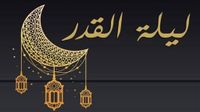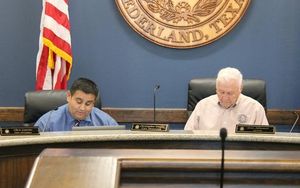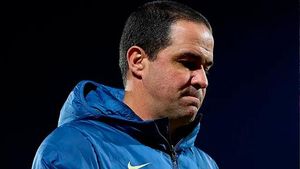The last ten days of Ramadan are regarded as a sacred period for Muslims worldwide, particularly because of the significance of Laylat al-Qadr, also known as the Night of Decree. This year, as the month of fasting approaches its conclusion, many are eager to enhance their prayers and supplications to maximize the blessings of this sacred time.
Starting from March 20, 2025, Muslims will begin observing the odd nights of these final ten days, each with profound importance for worship and reflection. Laylat al-Qadr is stated in the Quran to be better than a thousand months, making these nights an invaluable opportunity for seeking forgiveness, mercy, and closeness to God.
Specifically, the odd nights during Ramadan 2025 will fall on March 20-21 (21st Ramadan), March 22-23 (23rd Ramadan), March 24-25 (25th Ramadan), March 26-27 (27th Ramadan), and finally March 28-29 (29th Ramadan). The significance of these nights lies in the potential of encountering Laylat al-Qadr, a special night believed to be when the Quran was first revealed.
During this time, Muslims across the globe will engage in increased devotion, reading the Quran, and performing prayers. According to Islamic tradition, among the most recommended supplications for Laylat al-Qadr is a particular phrase taught by the Prophet Muhammad: “O Allah, You are Most Forgiving, and You love forgiveness; so forgive me.” This succinct prayer encapsulates the essence of the night and the overall goal of Ramadan, which is mercy and forgiveness.
Various supplications are encouraged in these nights, as proponents believe they are particularly effective during odd nights. As the videos, writings, and community discussions proliferate on this topic, it's clear that individuals are not just seeking anything, but rather specific prayers that resonate with their faith and personal circumstances. "Allah, I've made mistakes, and I seek Your forgiveness, healing, and closeness on this special night," reflects the sentiments of many.
Practicing Muslims understand that Laylat al-Qadr is a night of substantial blessings and a chance to seek refuge from the hellfire. The Prophet Muhammad emphasized the importance of these nights in various teachings and narrations. According to his words, each night brings opportunities for grace and peace, with an open invitation to request divine intervention.
As they navigate the sacredness of these nights, devotees emphasize spiritually preparing themselves for worship. This might include additional Quranic recitations, reflecting on their actions throughout the year, and seeking forgiveness not just for themselves but also invoking mercy for family and loved ones. The practice of generosity is also highlighted; giving to those less fortunate is seen as part of honoring these evenings of barakah, or bless—by reaching out to the community and alleviating sufferings.
Many pray for their loved ones, especially using the special time during the odd nights. It is common for Muslims to ensure they do not neglect prayers for their deceased relatives, believing that continued remembrance of these loved ones on nights when prayers are deemed most effective elevates their state in the hereafter.
As the nights draw near, online platforms are swamped with posts that guide users in how to optimize their night of worship. Recommendations to stay up late praying or reading the Quran are abundant, as are lists of vital supplications. Among them, there is a unified call for individuals to have faith that their supplications will be accepted; faith in Allah's mercy is considered essential.
It's a time of community, even if conducted from afar. Muslims will share their experiences, tips, and prayers on social media, fostering a sense of unity. Many report feeling particularly close to God during these moments of prayer and reflection.
Scholars also emphasize that these nights are not merely for personal gain but a communal aspect exists where believers gather to pray together, sharing the spiritual experience even amidst the physical distances induced by contemporary living.
Looking ahead, the need for self-reflection and genuine connection with one's faith guides Muslims through these pivotal nights. The culmination of Ramadan through these resources will hopefully amplify their spiritual journeys and provide deep nourishment for the soul.
Awaiting Laylat al-Qadr and understanding its implications are integral aspects of the entire Ramadan season. As each family embarks on this sacred tradition to strengthen their bond with God, they also share loved experiences that denote growth and spiritual enlightenment.
Lastly, as reminded by various Hadiths, Allah is always listening and waiting for His servants to turn to Him, seek forgiveness, and fulfill their destinies in righteousness. This culminates in the hope that successful prayers will weave their way into our lives and make the transition from Ramadan into a year of positive change and divine grace.





